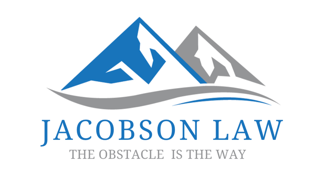Business attorney can help make sure your business does not experience losses
A business attorney in Boise ID can help you avoid losses by dealing with customers who fail to pay. As a business owner in Idaho, encountering customers who refuse to pay for goods or services rendered can be a frustrating and challenging situation. However, it’s essential to approach the issue with a clear understanding of your legal rights and options. In this article, we will discuss the legal avenues available to business owners in Idaho when dealing with non-paying customers.
1. Review Your Contractual Agreements
The first step in addressing non-payment issues is to review the contractual agreements between your business and the customer. Contracts serve as legally binding documents that outline the terms and conditions of the business relationship, including payment terms, deadlines, and consequences for non-payment.
In Idaho, contracts can be written or verbal, but written contracts are generally easier to enforce in court. Ensure that your contracts clearly specify the payment terms, including the amount owed, due dates, late fees, and any other relevant provisions.
2. Send a Demand Letter
If a customer has failed to pay according to the terms of the contract, the next step is to send a formal demand letter. This letter should outline the details of the debt owed, including the amount owed, the original agreement, and a request for payment within a specific timeframe, typically 10 to 14 days.
In Idaho, a demand letter can serve as evidence of your attempts to resolve the matter amicably before pursuing legal action. Be sure to send the demand letter via certified mail with a return receipt requested to ensure proof of delivery.
3. Consider Mediation or Arbitration
In some cases, it may be beneficial to explore alternative dispute resolution methods such as mediation or arbitration. These processes offer a less formal and costly alternative to litigation and can help parties reach a mutually agreeable solution outside of court.
Mediation involves a neutral third party facilitating discussions between the parties to settle, while arbitration involves a neutral arbitrator making a binding decision after hearing evidence from both sides. Both options can be faster and more cost-effective than traditional litigation.
4. File a Lawsuit
If all attempts to resolve the matter outside of court have been unsuccessful, filing a lawsuit may be necessary to recover the debt owed. In Idaho, small claims court is typically the preferred venue for pursuing claims involving smaller amounts, usually up to $5,000.
For larger debts exceeding the small claims court limit, you may need to file a lawsuit in the appropriate district court. It’s essential to consult with an experienced business attorney in Idaho to ensure compliance with the state’s legal procedures and deadlines.
5. Obtain a Judgment
If the court rules in your favor, you will receive a judgment against the non-paying customer. A judgment is a legal determination of the debt owed, which can then be enforced through various means, such as wage garnishment, bank levies, or liens on property.
Legal Remedies for Enforcing Payment
Once you have obtained a judgment against a non-paying customer, you can take legal action to enforce payment and recover the debt owed. Here are some common legal remedies available to business owners in Idaho:
- Wage Garnishment
Wage garnishment allows you to collect unpaid debts directly from the debtor’s wages. In Idaho, you can garnish up to 25% of the debtor’s disposable earnings or the amount by which their earnings exceed 30 times the federal minimum wage, whichever is less.
- Bank Levies
A bank levy allows you to seize funds directly from the debtor’s bank account to satisfy the judgment debt. In Idaho, you can levy a bank account as long as you have a valid judgment and know the location of the debtor’s bank.
- Liens on Property
You may also place a lien on the debtor’s property, such as real estate or vehicles, to secure payment of the judgment debt. A lien ensures that you will be paid if the debtor sells or refinances the property in the future.
- Collection Agency
If you are unable to enforce payment through wage garnishment, bank levies, or liens on property, you may consider hiring a collection agency to assist with debt collection efforts. Collection agencies specialize in recovering debts on behalf of businesses and can employ various tactics to compel payment from debtors.
- Bankruptcy Proceedings
In some cases, the non-paying customer may file for bankruptcy, which can complicate efforts to collect the debt owed. However, certain types of debts, such as those arising from fraud or willful misconduct, may not be dischargeable in bankruptcy.
- Consider Negotiated Settlements
In some cases, pursuing a negotiated settlement with the non-paying customer may be a more practical solution than litigation. By engaging in settlement negotiations, you can potentially reach a compromise that satisfies both parties and avoids the time and expense of going to court. Negotiated settlements can involve agreeing to a reduced payment amount, setting up a payment plan, or exchanging goods or services in lieu of monetary compensation. It’s essential to approach negotiations with a clear understanding of your bottom line and consult with a business attorney in Idaho to ensure any settlement agreements are legally sound.
In conclusion, dealing with non-paying customers is a common challenge faced by business owners in Idaho. By understanding your legal rights and options for enforcing payment, you can take proactive steps to protect your business interests and recover the debts owed to you. It’s essential to consult with a knowledgeable business attorney in Idaho to navigate the legal complexities and pursue the most effective course of action for your situation.
Hire the best-rated business attorney in Boise ID
Jacobson & Jacobson Law Firm, since 1982, is committed to serving the Boise and Nampa, Idaho areas for your top Criminal Defense, Personal Injury, Business Law, Estate Planning, Family Law, Immigration Law, and Litigation needs. Contact us today to get started. For a free 30-minute consultation, book here: https://calendly.com/jfj-1


